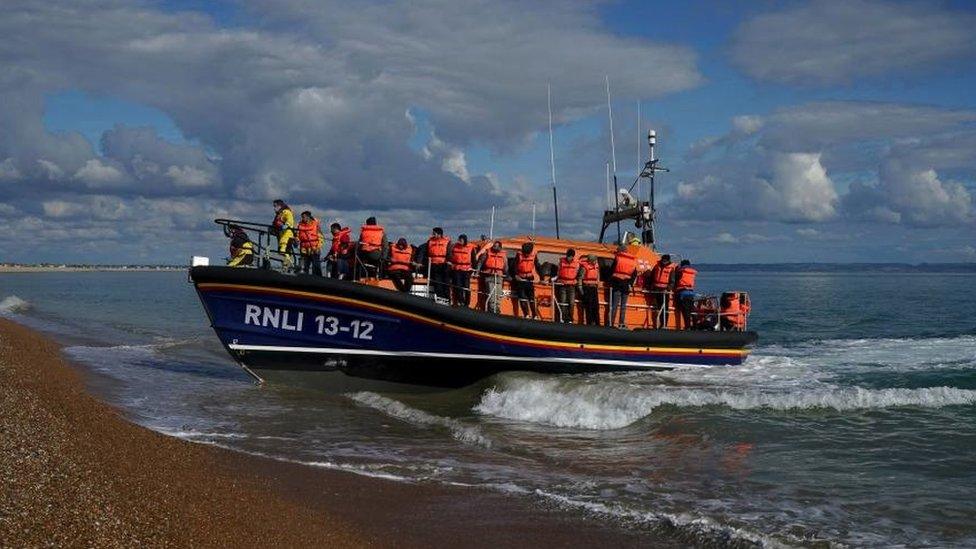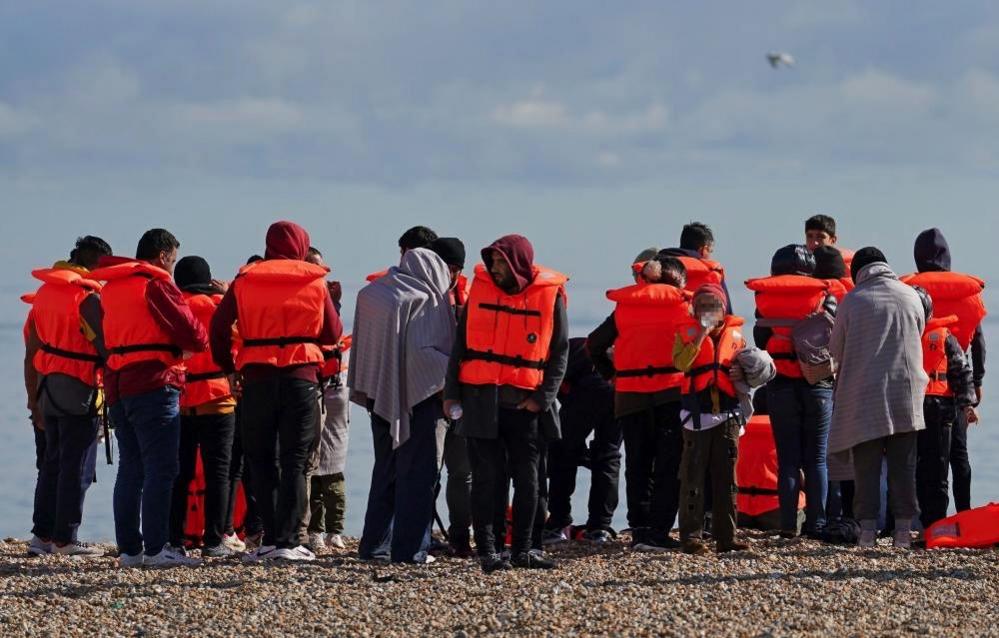Channel migrants: 116 children missing from UK hotels
- Published

More than 100 unaccompanied child migrants remain missing after disappearing from UK hotels over a 14-month period, data reveals.
BBC News has discovered that 116 children disappeared between July 2021 and August 2022, after temporarily being put in hotels by the Home Office.
Charities fear the children, some as young as 11, risk being exploited.
The Home Office said it had "no alternative" but to use hotels while long-term accommodation was found.
The government has been placing children who arrive in the UK in approved hotels since July last year, after local councils said there was not enough capacity to house them in suitable accommodation.
Some 1,606 children who arrived alone between July 2021 and June 2022 were placed in hotel accommodation by the Home Office, according to its own figures.
BBC Two's Newsnight discovered that 181 children - aged 18 or less - subsequently went missing in the 14-month period covered by the data, which was released by the Home Office following Freedom of Information requests. But 65 were later found.
The charity ECPAT UK said the number of missing children was "shocking" and called on the government to stop placing them in hotels.
"They could be working away in a cannabis farm, in a factory, domestic servitude. There's a whole range of exploitative situations that these young people could be in," said its chief executive, Patricia Durr. "They could be being criminally exploited or sexually exploited behind closed doors."
Rishan Tsegay, who arrived in the UK from Sudan on the back of a lorry aged 17 and has since been granted asylum, says she fears some of those missing children could end up in the hands of the traffickers who brought them into the country.
"They [traffickers] like to manipulate young people and make them do things when they get here. I wouldn't doubt that. This is nothing new," she said.
"They might say if you go to this place you have to pay us back, otherwise I will kill your mum, or your family. How are you going to respond?" she added.

The Home Office said it was seeing an "unprecedented rise in dangerous Channel crossings".
It said: "On average, unaccompanied children seeking asylum are moved to long-term care within 15 days of arriving in a hotel, but we know more needs to be done.
"That is why we are working closely with local authorities to increase the number of placements available and offer councils £6,000 for every child they can provide accommodation for.
"Any child going missing is extremely serious, and we work around the clock with the police and local authorities to urgently locate them and ensure they are safe."
The Local Government Association, which represents councils, says it is "working tirelessly to find suitable placements for unaccompanied children, with 597 placements made in the past six months".
While it said placements were increasing, it also called on the Home Office to stop using hotels. "Councils have expressed concerns to the government around the impacts on children, including the risks around children going missing," it added.
In July, the Home Affairs Select Committee reported that the disappearance of separated migrant children from hotels was "extremely concerning".
It said the government must "immediately and clearly confirm where responsibility lies for every aspect of safeguarding children housed in accommodation".